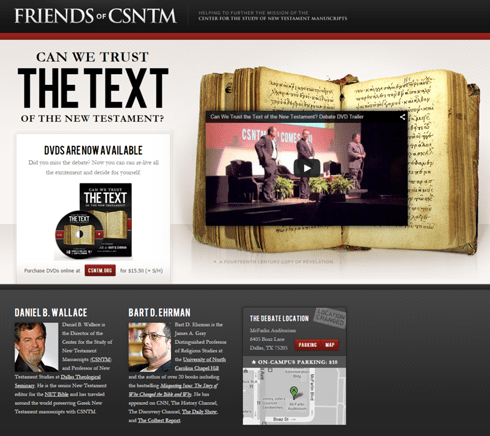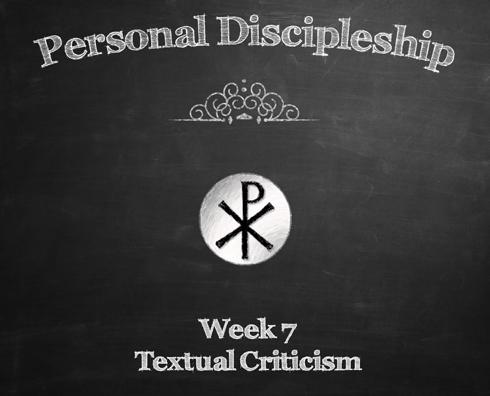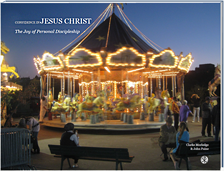 When someone confronts us in a particularly offensive manner or strikes at a deeply held conviction or belief, most of us have a natural inclination to fight back. Unfortunately, we have a tendency to let anger and emotions get the better of us.
When someone confronts us in a particularly offensive manner or strikes at a deeply held conviction or belief, most of us have a natural inclination to fight back. Unfortunately, we have a tendency to let anger and emotions get the better of us.
Like it or not, we live in a world where there is little tolerance for people who think differently. From a purely cultural perspective, we are far less apt to listen and empathize than we are to attack and vilify. To win is to vanquish our enemies. Or is it?
“You have heard that it was said, ‘An eye for an eye and a tooth for a tooth.’ But I tell you not to resist an evil person. But whoever slaps you on your right cheek, turn the other to him also. If anyone wants to sue you and take away your tunic, let him have your cloak also. And whoever compels you to go one mile, go with him two. Give to him who asks you, and from him who wants to borrow from you do not turn away. “You have heard that it was said, ‘You shall love your neighbor and hate your enemy.’ But I say to you, love your enemies, bless those who curse you, do good to those who hate you, and pray for those who spitefully use you and persecute you, that you may be sons of your Father in heaven; for He makes His sun rise on the evil and on the good, and sends rain on the just and on the unjust. For if you love those who love you, what reward have you? Do not even the tax collectors do the same? And if you greet your brethren only, what do you do more than others? Do not even the tax collectors do so?”
Matthew 5:38-47, NKJV
In our Personal Discipleship class we have been studying contemporary challenges to the Christian faith. One of the more prominent challengers is Bart Ehrman, a popular skeptic who calls himself an agnostic, but who more accurately fits the mold of an angry, deconverted Christian. (Ehrman has a big beef with God over the problem of evil and suffering.) His books achieve best-seller status, and he is quoted by atheists and skeptics as an authority on the unreliability of the Bible. He is revered by friend and foe alike for his skill in textual criticism. His research is largely undisputed, but his premises and conclusions are highly biased. Nevertheless, he strikes a chord with those seeking to discredit the trustworthiness of the Bible.
While it’s very difficult for some to listen to abrasive skepticism, it is encouraging to see how rigorous scholarship can turn back the skeptic’s wrath. Well-articulated truth is a powerful antidote to skepticism, particularly when it follows the apologetic ethic of gentleness and respect. Here is a debate you can buy (sorry, there is no good quality video currently being served online) between Ehrman and Dan Wallace on the reliability of the text of the New Testament. It was at the time the largest debate ever held on the reliability of the New Testament text. (For some interesting background, see the video in this post.)

Dan Wallace is amazing in this debate. He is honest, well-informed, learned, respectful, humorous, and makes a convincing case for the reliability of the New Testament text. His response to Bart Ehrman is a model of what Jesus preached in the Sermon on the Mount (quoted above). Wallace’s response is not angry—although he is deeply concerned about the effects of Bart Ehrman’s influence on our culture. Wallace has the proper response to textual skepticism. He doesn’t vilify Bart Ehrman—he doesn’t need to. It is amazing what we can do when we take the time to study the facts and respond in obedience, with an appreciation of the right ethics.
And finally, for those following our Personal Discipleship class or otherwise interested in Textual Criticism, here are the class notes.

- Click on the images inside this file to link to the online resources. (You may need to adjust your browser settings to allow the links to work, or open it in iBooks, or save it to your desktop and open it with Acrobat Reader.)
HT: Daniel B. Wallace, Marion Paine


March 21st, 2015 at 11:53 am
It is not for us to “prove” the bible is right – it already is being that it is the word of God – often, when we get involved in these debates – we are just trying to prove ourselves right…..it is such freedom when we learn that we don’t have to prove anything…… God bless
LikeLike
March 22nd, 2015 at 8:18 pm
Absolutely true. Often, how we respond is more compelling than what we say. It’s so difficult to control our tongue, but as in the case of this debate, obedience, dedicated study, and a spirit that turns away wrath honor our Lord.
LikeLiked by 1 person
March 27th, 2015 at 11:38 am
wise words indeed!
LikeLike
March 23rd, 2015 at 6:52 pm
Reblogged this on Reasons For The Hope Blog and commented:
Another great post from Veracity.
LikeLike